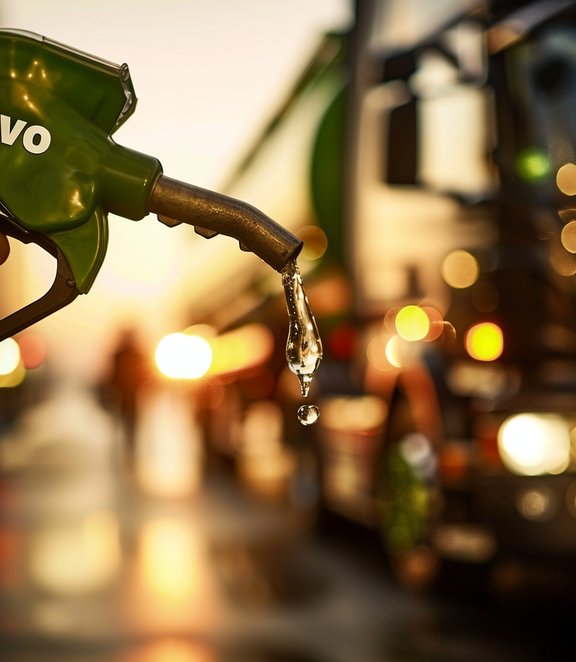A unique initiative: PostNL and Spring GDS adds four million litres in biofuels (HVO100) to European diesel network!

From today, PostNL and Spring GDS will be adding around four million litres of HVO100 to Europe’s diesel network for road transport.
It represents a significant step forward towards cleaner and more sustainable delivery practices, ensuring a reduction of 12 kilotonnes of carbon emissions annually– equivalent to more than 5000 petrol-fuelled cars driving for twelve months.* This initiative helps PostNL and Spring to make a significant contribution to reducing carbon emissions in the transport industry.
PostNL and its international subsidiary already prioritize walking, cycling, and using electric vehicles for letter and package deliveries in the Netherlands. Additionally, they use HVO100 renewable fuels for large-scale transportation where vehicles are not yet electrified. HVO100 significantly reduces emissions of harmful substances such as carbon dioxide (CO2), nitrogen oxides (NOx), and particulate matter, emitting up to 90% less CO2 than regular diesel.
Unique and major move forwards
For international long-distance road transport, sustainability is even more challenging: The range and infrastructure for electric trucks is still underdeveloped and the availability of HVO100 outside the Netherlands is very limited. However, there’s a solution: HVO100 can be integrated into the existing European diesel network. PostNL and Spring, in collaboration with partners, have found a way to utilize HVO100 for international road transport within Europe. This marks a unique and substantial advancement in the logistics sector.
HVO100 in the European network
Tijs Reumerman, Managing Director for PostNL’s Cross Border Solutions, reveals: “We were looking for an innovative solution to use HVO100 and found it by setting a new standard, hoping that this initiative will inspire others. Going forward, we’ll be buying as much in biofuels as we’d need to cover all our international road transport in Europe, and this will be added to Europe’s diesel network from today. This solution reduces as much in the way of emissions as if our trucks were able to run on HVO100 directly. It’s a major move that I’m immensely proud of. Working closely with our customers, last-mile partners and the entire logistics sector, we want to help make all of Europe’s road transport more sustainable – and this initiative enables us to set the right example. All our customers directly benefit from these reduced carbon emissions, at no extra costs.”
Hitting net zero a decade earlier
- As a market leader with an extensive network across Europe, PostNL feels an urgent responsibility to contribute to a sustainable society. The company works every day to improve its impact across its delivery chain, by switching to emission-free logistics and working with the market on circular economy solutions, among others. PostNL has further refined its climate strategy and submitted more ambitious carbon emission targets to the Science Based Targets initiative (SBTi). The company aims to achieve virtually zero impact on the climate and environment by 2040, a decade ahead of established climate agreements. Through the expansion of sustainable fuel usage, it has taken another significant step towards realizing this objective.
*Source: 2022 Dutch road statistics from cbs.nl multiplied by emission factors from CE Delft.
About Spring
Spring, a leading logistics provider, specialized in cross-border and e-commerce, has 18 operation centers spread across 3 continents. In addition, Spring collaborates with over 230 international logistics partners, granting e-commerce merchants from everywhere access to 190 destinations worldwide. In terms of sustainability, Spring champions the use of HVO100 in the European road network and with this initiative solidifies its strong commitment to greener international shipping solutions.
